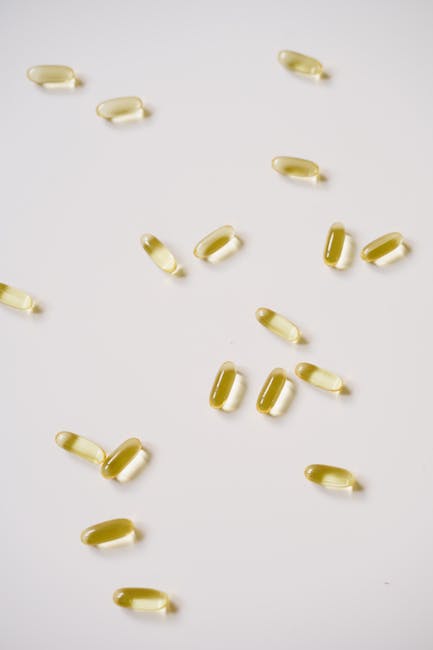10 Nutritional Supplements That Aid in Fractured Skull Healing 🧠
When it comes to healing a fractured skull, the journey can seem daunting. While medical intervention is crucial, the right nutritional support can also make a significant difference. Let’s explore some nutritional supplements that might just give your body the boost it needs to heal more efficiently.
Table of Contents
1. Introduction
2. Calcium: The Bone Builder 🦴
3. Vitamin D: The Sunshine Vitamin ☀️
4. Omega-3 Fatty Acids: Brain’s Best Friend 🐟
5. Magnesium: The Relaxation Mineral 😌
6. Vitamin K: The Clotting Helper 🩸
7. Zinc: The Repair Agent 🔧
8. Vitamin C: The Collagen Booster 🍊
9. Protein: The Building Block 🥩
10. B-Vitamins: Energy Enhancers ⚡
11. Conclusion
12. FAQs
Calcium: The Bone Builder 🦴
Calcium is essential for bone health, and when it comes to healing a fractured skull, it becomes even more critical. This mineral supports bone regeneration and strength, helping your skull recover sturdily. Foods rich in calcium, like dairy products, leafy greens, and fortified alternatives, are great additions to your diet.
Vitamin D: The Sunshine Vitamin ☀️
Vitamin D plays a vital role in calcium absorption. Without it, your body struggles to utilize calcium effectively. Spending a little time in the sun or consuming vitamin D-rich foods like fatty fish, egg yolks, or fortified foods can be beneficial.
Omega-3 Fatty Acids: Brain’s Best Friend 🐟
Omega-3s are not only excellent for brain health but also help reduce inflammation, potentially speeding up the healing process. Consider adding fish, flaxseeds, or walnuts to your diet to get a good dose of these healthy fats.
Magnesium: The Relaxation Mineral 😌
Magnesium aids in maintaining nerve function and helps in muscle relaxation. It’s also involved in over 300 biochemical reactions in the body, making it indispensable for overall health. Nuts, seeds, and whole grains are excellent sources of magnesium.
Vitamin K: The Clotting Helper 🩸
This vitamin is crucial for blood clotting, which can be particularly important if your fracture involves any bleeding. Leafy greens, such as kale and spinach, are packed with vitamin K and can assist in the healing process.
Zinc: The Repair Agent 🔧
Zinc is a powerhouse for tissue repair and immune function. It’s known to support the healing process, making it a valuable supplement for anyone recovering from a fracture. Foods like meat, shellfish, and legumes are rich in zinc.
Vitamin C: The Collagen Booster 🍊
Vitamin C is vital for collagen production, which is crucial for bone healing. Not only does it enhance collagen synthesis, but it also boosts your immune system. Citrus fruits, berries, and bell peppers are excellent sources of vitamin C.
Protein: The Building Block 🥩
Protein provides the building blocks necessary for tissue repair. Ensuring adequate protein intake can help your body rebuild and strengthen the affected area. Lean meats, dairy, and plant-based proteins like beans and tofu are great options.
B-Vitamins: Energy Enhancers ⚡
B-Vitamins, including B6 and B12, are crucial for energy production and red blood cell formation, both of which support the healing process. Whole grains, eggs, and dairy products can provide a good amount of B-vitamins.
Conclusion
Healing from a fractured skull is no small feat, but with the right nutritional support, you can give your body the tools it needs to recover effectively. Always consult with your healthcare provider before starting any new supplement regimen to ensure it’s safe and appropriate for your specific situation.
FAQs
1. Can supplements replace medical treatment for a fractured skull?
No, supplements should never replace medical treatment. They’re intended to support the healing process alongside professional medical care.
2. How long should I take these supplements?
The duration can vary depending on your specific needs and recovery progress. It’s best to discuss this with your healthcare provider.
3. Are there any side effects to taking these supplements?
Some supplements can have side effects or interact with medications. Always consult your doctor before starting any new supplement.
4. Can I get these nutrients from food alone?
While a balanced diet can provide many of these nutrients, supplements can help ensure you’re getting enough, especially if you have specific deficiencies.
5. Is it necessary to take all these supplements?
Not necessarily. Your healthcare provider can help determine which supplements are most beneficial for your particular situation.

